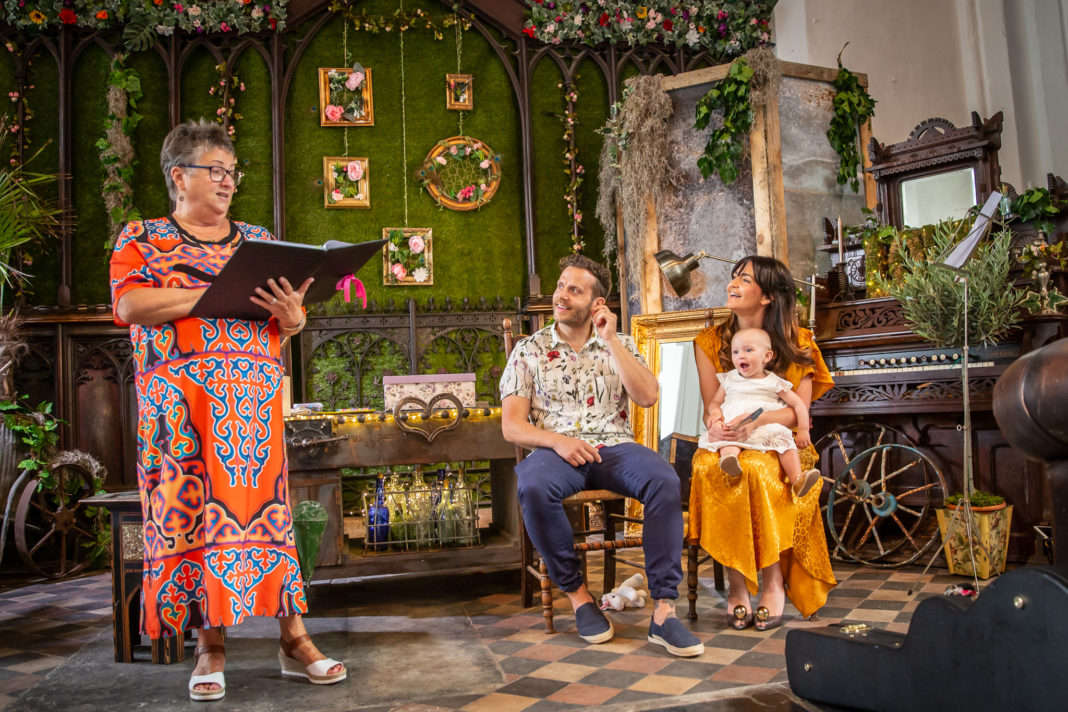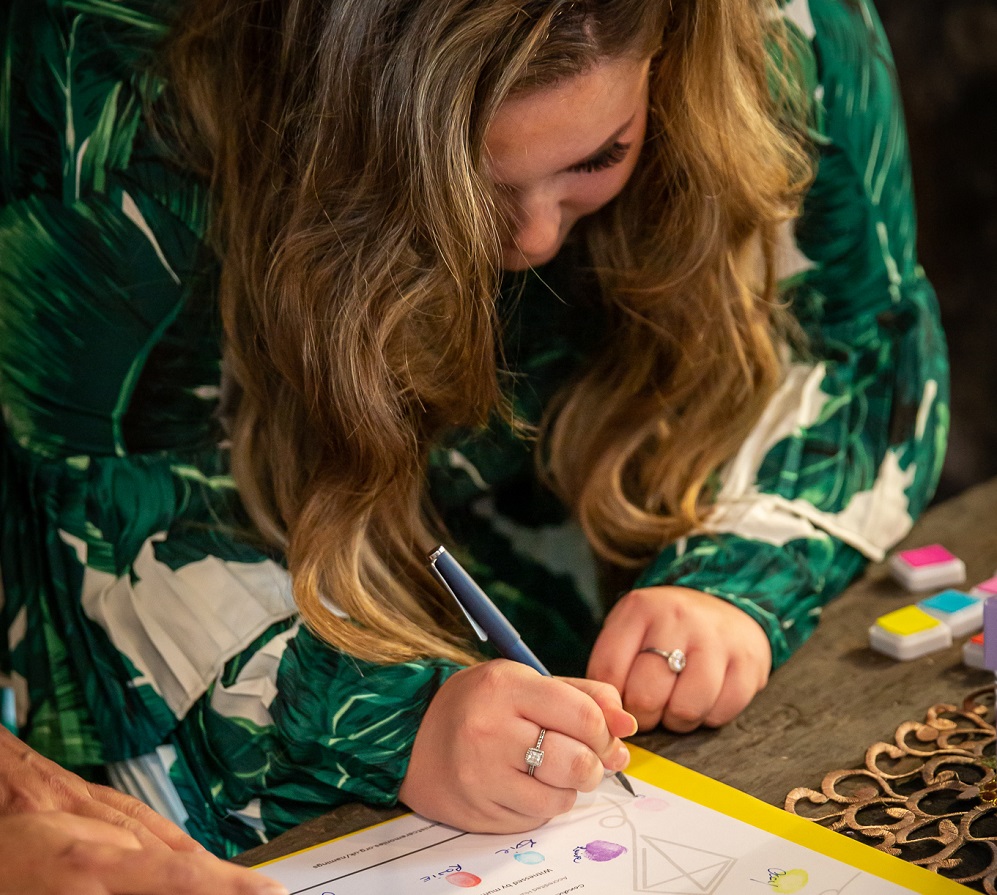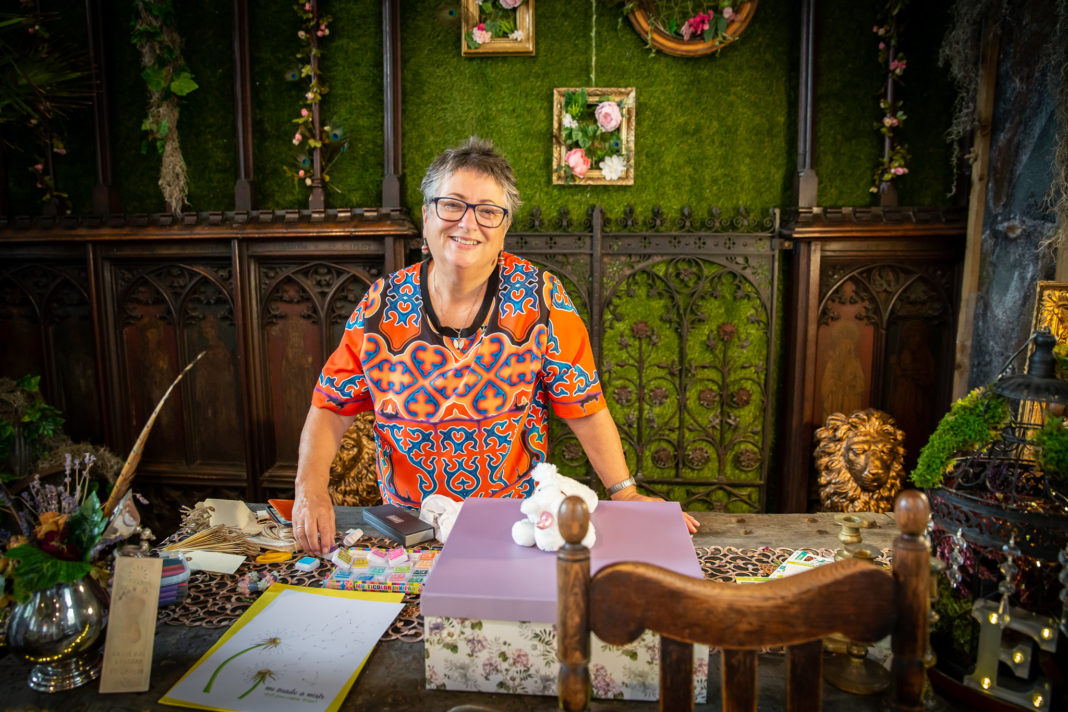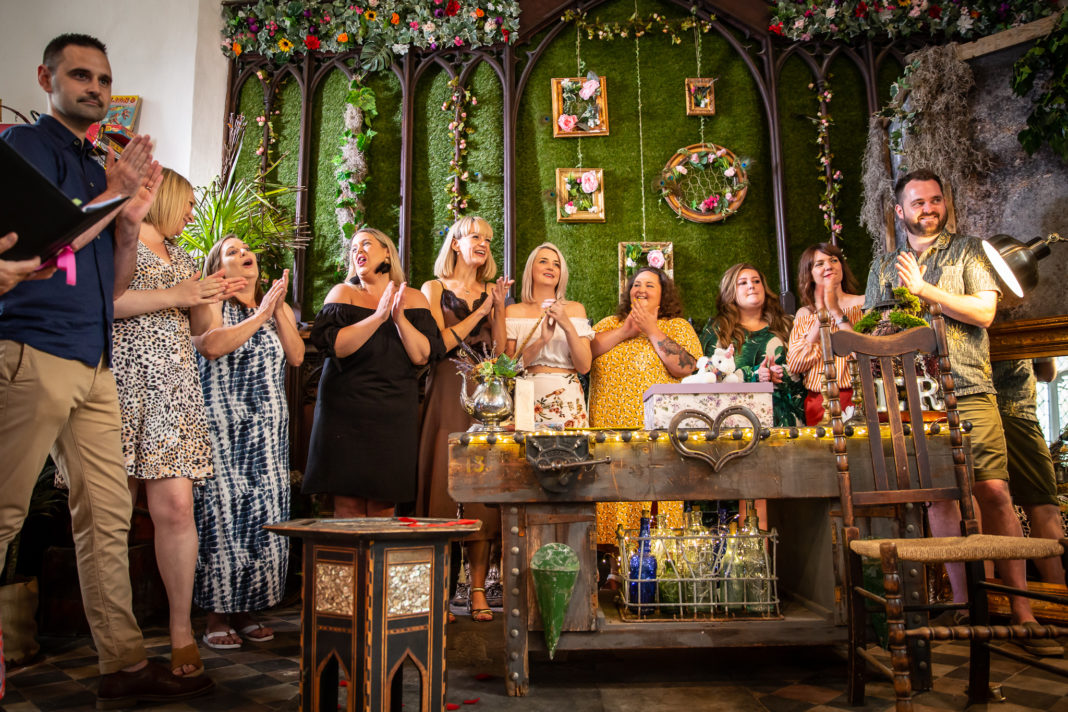What do non-religious people do if they want to celebrate the arrival of a new child? Obviously a christening or baptism wouldn’t feel appropriate. Thankfully, another option has been around for many decades and it’s something that has become an increasingly popular trend in recent years, particularly as society becomes less religious: a humanist naming ceremony.
Simply put, a humanist naming ceremony is a way of celebrating and welcoming a new addition to your family.

Also known as a welcoming ceremony, a naming day is perfect for newborns, one-year-olds, or toddlers, but they don’t have to be limited to a child of a young age. In fact, naming ceremonies can welcome babies, adopted children, or step-children, and for older children they can be seen as a rite of passage and a day of celebration.
People choose to have naming ceremonies because they want to bring family and friends together in one place to commemorate someone important in your life, and reflect the role that key people will play in the lives of the child.
What happens at a naming ceremony?
Each naming ceremony is unique and you can be as creative as you like! You may choose to involve family and friends, singing, poetry, and even symbolic rituals – anything that brings meaning and a sense of occasion to the day.
Celebrations can vary in length from 20 minutes to all day, and they can be easily combined with a birthdays or wedding.
There is a lot of variety to what happens in a naming ceremony. As they don’t draw from any one tradition of thought or belief, many common rituals have been created in the modern day to express the unique feelings that parents and guardians can have towards a new child.

For example, naming ceremonies often include rituals such as the signing of a certificate, sand ceremonies, tree-planting, candle-lighting, or hand/foot printing. Our celebrants have lots of ideas they can share with you to make your day extra special.
What does a humanist naming celebrant do?
Your celebrant will spend time getting to know you, so that they can tell your story, in an authentic and meaningful way. Together, you will discuss any promises, readings, poems, rituals, and music you might like to include.
Celebrants who are members of the Humanist Ceremonies network are trained and accredited by Humanists UK, a charity that has been conducting non-religious ceremonies for over 120 years. In the event of your celebrant falling ill, an equally qualified celebrant will step in and conduct the ceremony for you. Find a naming celebrant with our easy-to-use map.

Where can we hold a naming ceremony?
As naming ceremonies, like christenings, have no legal basis, there are no restrictions on their location.
A humanist naming ceremony can be held wherever you like (within reason) – at home, in the garden, in a park, at a hotel, or at your local community centre.
Feel free to use your imagination! We’ve even held a naming ceremony at a zoo!
Can we nominate ‘godparents’?
You can certainly include key adults in the naming ceremony. How many you choose to appoint is entirely up to you. The adults you choose can all have different roles and titles and they can make their own, individual promises to your child during the ceremony.
The most popular names used in place of ‘godparent’ are ‘guideparent’, ‘mentor’, ‘sponsor’ and ‘guardian’. Other families go for a more light-hearted term like ‘sparent’ or ‘oddparent’.

Next steps
The role of the naming celebrant is to help you manage this process, let your creativity flow, and co-create the perfect day to celebrate your child.
The first step is to find your naming celebrant. Your local celebrant will be happy to discuss your unique celebration.
Featured photographer
Thanks to ETT Photography for these beautiful images.





